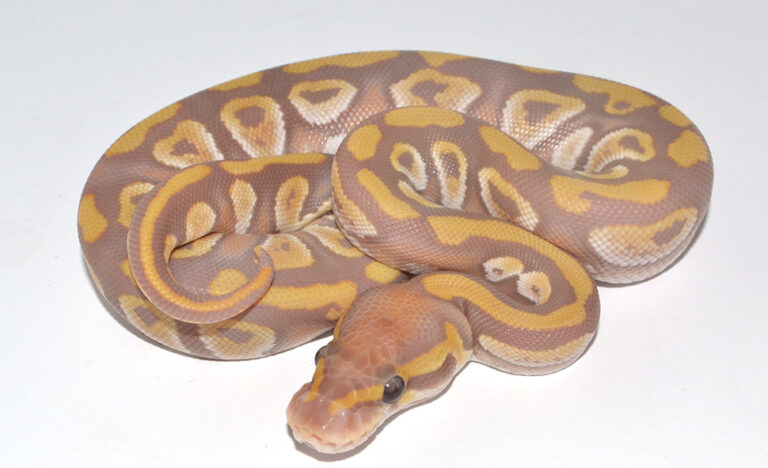How Young Can Female Ball Pythons Breed?
Originally published: January 20, 2014
Last updated: December 19, 2022
“I have heard females should wait three winters before breeding, but there seem to be discrepancies and conflicting information out there. What are your thoughts on this?”
– Reader
My view on breeding young females differs from conventional wisdom. To answer this question, we must explore the relationship between age, size, sexual maturity, and natural history.
When hobbyists debate how young to breed a female, they fail to acknowledge that males breed females regardless of size, weight, or age in the wild. A wild female will likely breed every year without detriment to her health. How? Her body has the final say as to whether or not she produces.
Unlike involuntary, cyclical egg release in mammals, a female Ball Python actively develops follicles for up to several months before ovulation. If conditions become unfavorable, she can reverse this process by reabsorbing.
If a female begins to absorb her follicles, there is nothing a breeder can do to stop it. Her body knows if the timing is right and whether or not she can healthfully produce eggs. Thousands of years of self-preservation instinct is more reliable than your or my opinion on the topic; whether we like it or not, her body will react accordingly.
When I begin pairing a 1200-gram female in the fall, I know that if her instinct to produce kicks in, she will feed readily and grow to 1800g by the time she lays. If her instinct to reproduce doesn’t kick in, nothing will happen, and she will be no worse for the wear.
A common concern is egg binding. If the female is not up to size or is too immature, will she become egg-bound? In my experience, the small percentage of females who become egg-bound are almost always proven breeders, not first-timers. Additionally, I have noticed no correlation between egg-binding and age, size, or weight. My only first-time breeder who became egg-bound happened to be five years old and 3000 grams.
Another consideration is whether you should use resources (a breeding male) on a young or smaller female who is unlikely to produce. This decision is highly situational and goal-dependent. Sometimes the point of breeding is not to get eggs, but to give the female a bit of motivation. Well-timed breeding often keeps a female on feed and prevents extended fasts. This can propel her development and ensure she is ready to produce the following season.
In short – Ball Pythons will not produce eggs against their own will and best interest. So relax and let nature do what it does best!
Justin K.
